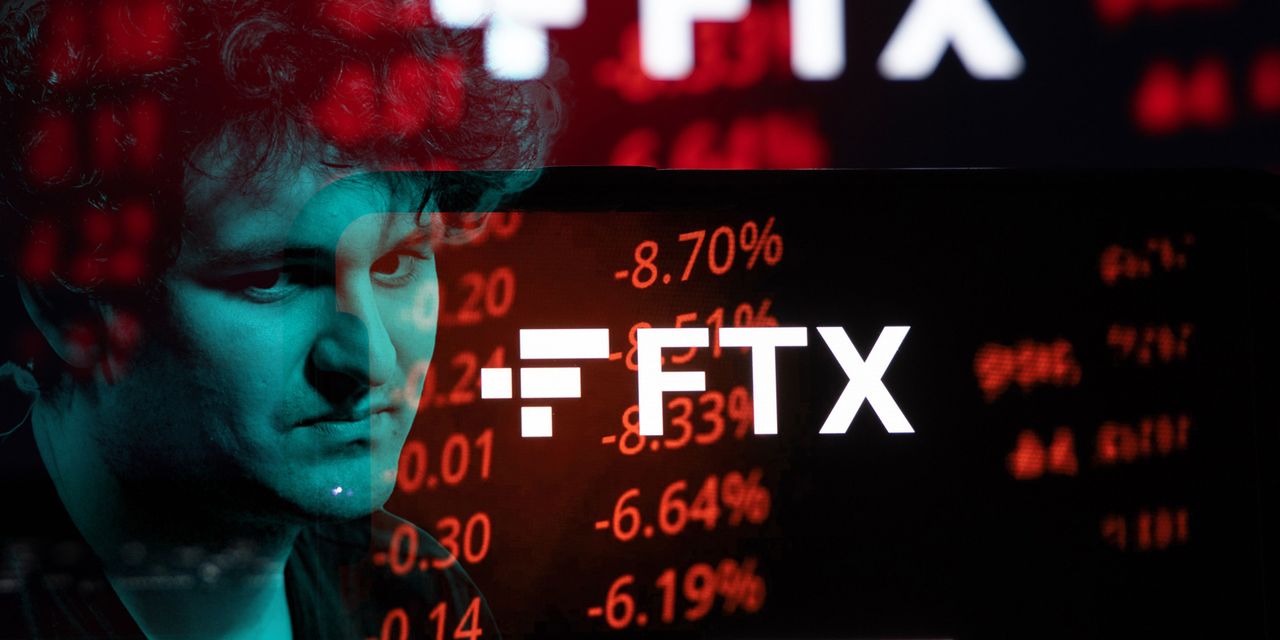Cryptocurrencies were supposed to offer a new, virtual alternative to the current, mundane “corrupt” system, in which a few dozen bureaucrats in conference rooms around the world — central bankers — manipulate the price of the most important commodity of all — money — through control of interest rates.
The collapse of FTX and the subsequent bankruptcies revealed that what may have started as a kernel of a sincere libertarian idea to stand up to endless money printing and debt creation in our financial system, has been hijacked by what appears to be an immutable flaw of the human condition: our greed and desire to get rich fast.
“ The cryptocurrency world transformed into an even more corrupt and even more leveraged system than the one it was attempting to replace. ”
The cryptocurrency world transformed into an even more corrupt and even more leveraged system than the one it was attempting to replace. Theft committed by thousands of cryptocurrency and NFT creators made Wall Street, which society loves to hate, look like a group of nuns, as the crypto gang stole money from the public in broad daylight.
With every market bubble, we are reminded that there is nothing new under the sun. The most recent iteration has been helped to swell by technology and social media, which just expedited the ascent and widened the reach of its perpetrators.
Sam Bankman-Fried (SBF), a 30-year-old nobody, makes Bernie Madoff, the disgraced money manager who perpetrated the biggest Ponzi scheme ever, look like an amateur. What took Madoff decades, SBF accomplished in just a handful of years.
By agreeing that zeros and ones stored in a decentralized database may constitute a currency, our society has normalized something that has no intrinsic value, as crypto has no cash flows and limited utility. Yes, the words we use matter, and just because something is limited in quantity does not automatically make it valuable and turn it into a medium of exchange for goods and services (that is, a currency) or a valuable work of art (referring to NFTs here).
Crypto has been touted as a decentralized, grass-roots alternative to the centralized, overregulated government-run system that was up to its ears in endless quantitative easing and money printing. Though the crypto ledger (the database) is decentralized, unless you are going to store the digital key that unlocks your digital treasure on a USB stick and risk losing it, you’ll have to rely on exchanges and digital wallets that are unregulated, expensive to use, and have proven to be a significant point of weakness.
As you look through the ruins of the crypto collapse, you’ll notice that the crypto tulip market is nothing more than a giant, unregulated, leveraged casino, whose real purpose is not to improve the world or deliver the technology of the future but to enrich its creators and provide degenerate gamblers with another exciting way to speculate and jump on a get-rich-quick opportunity disguised as investing. This is the entire reason for the existence of the crypto world.
Leverage drove both speculation and prices upward. Conversely, it is now driving prices downward and destroying confidence in a system that was built on the quicksand of hope and greed. It is fracturing the story that was the only thing crypto tulips had going for them.
“ The crypto decline will reduce the demand for microchips that were used to produce crypto garbage, as well as demand for the digital advertising that was used to spread the lie. ”
Unfortunately, many everyday people were infatuated by the prospect of getting rich fast, and predictably lost their life savings. Some venture capitalists will lose other people’s money and their own reputations. The crypto decline will reduce the demand for microchips that were used to produce crypto garbage, as well as demand for the digital advertising that was used to spread the lie. There will be some other second- and third-order effects that will become obvious in hindsight. The collapse of FTX may have been a “Lehman moment” for the crypto universe, but it is unlikely to have a significant impact on our financial system. It will spill into the real world, but only on the margins.
Ironically, as much as I criticize the current flawed system, crypto has been a fascinating experiment that has made it quite clear that leaving the financial system to operate in complete anarchy, without safeguards, regulation, or a fear of the law, brings out the worst in us and results in wanton thievery and utter chaos.
Vitaliy Katsenelson is CEO and chief investment officer of Investment Management Associates. He is the author of Soul in the Game – The Art of a Meaningful Life.
Here are links to more of Katsenelson’s views of the inflation landscape (read, listen) and how to invest in inflationary times (read, listen). For more of Katsenelson’s insights about investing, head to ContrarianEdge.com or listen to his podcast at Investor.FM.
Value will once again outperform growth, these investing-newsletter writers say.
Vitaliy Katsenelson is a contributor to MarketWatch and chief investment officer at Investment Management Associates.
Visit a quote page and your recently viewed tickers will be displayed here.

